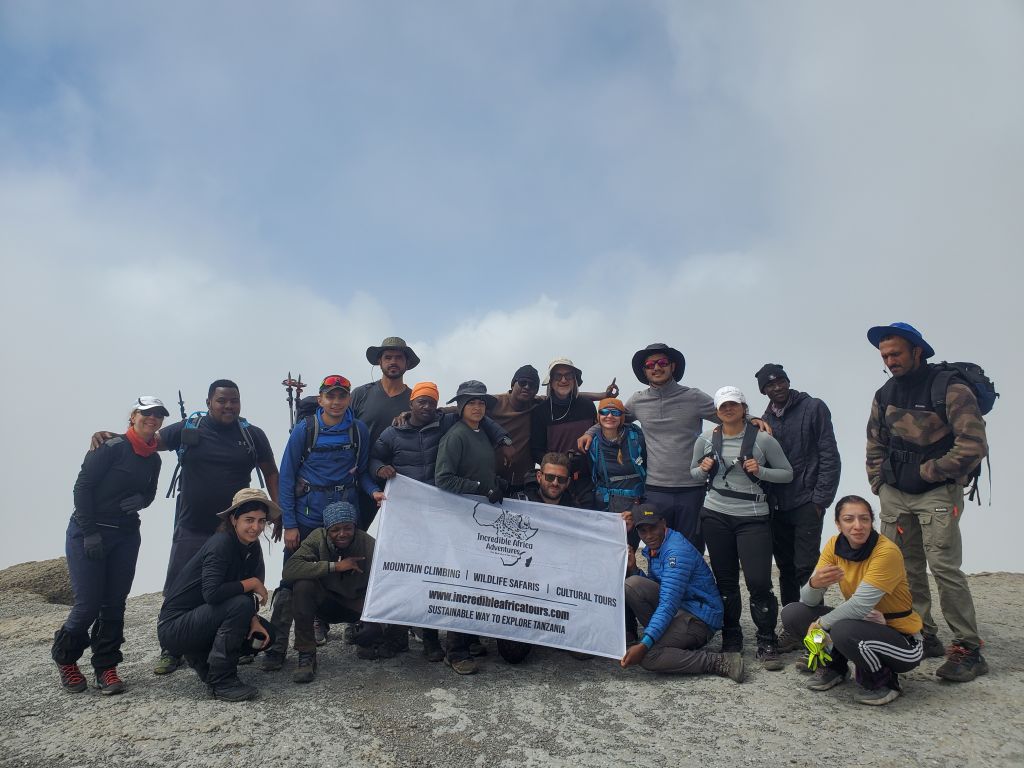
Planning your adventure to Mount Kilimanjaro and Tanzania? One common concern for travelers is understanding tipping guidelines for guides, porters, and other crew members who work tirelessly to make your trip unforgettable. At Incredible Africa Adventures, we believe tipping should reflect the quality of service received, much like in a restaurant.
To help you budget and prepare, we’ve created this comprehensive guide to tipping on your Kilimanjaro climb and safari.
Why Tipping Matters?
Tipping is a meaningful way to show appreciation for the hard work of the team supporting your climb or safari. It also directly contributes to the livelihoods of local workers, whose efforts make your adventure possible.
Recommended Tipping Amounts for Kilimanjaro Climbs
When climbing Mount Kilimanjaro, your support team works tirelessly to help you achieve your goal. Here are the recommended tipping amounts per group for a seven-day climb:
Porters: $8–$12 per porter per day (approximately $50 or more per porter for the trip)
Cook: $12–$15 per day (around $85 or more for the trip)
Assistant Guide: $12–$15 per day (around $85 or more for the trip)
Lead Guide: $15–$20 per day (approximately $105 or more for the trip)
Budget Estimate Per Climber: $250–$400, depending on the group size, route, and amount of gear carried:
Group size: Larger groups typically divide tips among more members, reducing individual contributions.
Route duration and difficulty: Longer or more challenging climbs may involve more crew members and higher tips.
Equipment weight: The more gear required, the more porters are needed.
Tipping Guidelines for Tanzania Safaris
Your safari guide is a key part of your experience, offering expert knowledge about wildlife and ensuring your comfort. Here’s the tipping breakdown:
Safari Guide: $20–$30 per day per group.
For instance, if four travelers are on safari, each person could contribute $5–$7.50 per day to tip the guide.
General Tipping Etiquette
To ensure a smooth tipping process, keep these tips in mind:
1. Timing: Tips are typically distributed at the end of your climb or safari, either at the park gate, hotel, or office.
2. Envelopes: Bring letter-sized envelopes to distribute tips discreetly.
3. Currency: Tips can be given in Tanzanian Shillings or US Dollars.
4. Fair Distribution: Divide tips among the team members, including porters, cooks, assistant guides, and lead guides.
Why Tipping Makes a Difference?
The average Tanzanian earns about $50 per month. A $50 tip for multiple days of challenging work is a significant contribution that supports the local economy and provides fair compensation for the team’s hard work.
Additional Tips for a Seamless Adventure
Tipping is not a standardized practice across all companies but rather a recommendation based on guidelines from NGOs and the Tanzanian government.
Higher-end operators may see tips above these recommendations, while budget operators might see lower tips.
Discuss tipping with your group beforehand to ensure clarity and fairness.
Carry smaller denominations to make distribution easier.
Remember that tipping is not mandatory but a gesture of gratitude for exceptional service.
Conclusion
Tipping is an essential part of your Kilimanjaro climb and Tanzania safari experience. It shows gratitude and supports the hardworking individuals who ensure your trip is safe, comfortable, and memorable. At Incredible Africa Adventures, we’re happy to provide guidance and answer any questions to help you prepare for this meaningful part of your journey.
Ready to start your adventure? Contact us today for more information on planning your dream Kilimanjaro climb or Tanzania safari!
Drop us a line. Our Safari experts will answer all your questions in 24 hours